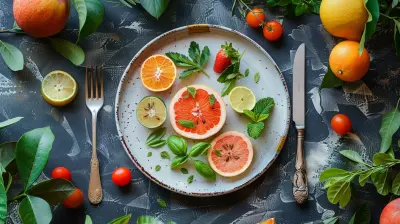Exploring the World of Vegan Cheese Alternatives
18 June 2025
Let’s be real — cheese is one of those comfort foods that can be incredibly hard to part with. Whether it's melted on pizza, layered in a sandwich, or paired with crackers and wine, cheese holds a special place in many hearts (and stomachs). But what if you’re vegan, lactose intolerant, or simply looking to cut out animal products? That’s where vegan cheese alternatives come into play.
Vegan cheese isn’t just a passing trend; it’s a full-on revolution in the food world. More people are turning to plant-based options, and the vegan cheese scene has seriously stepped up its game in taste, texture, and variety. Let’s dive into the delicious and ever-growing world of vegan cheese alternatives.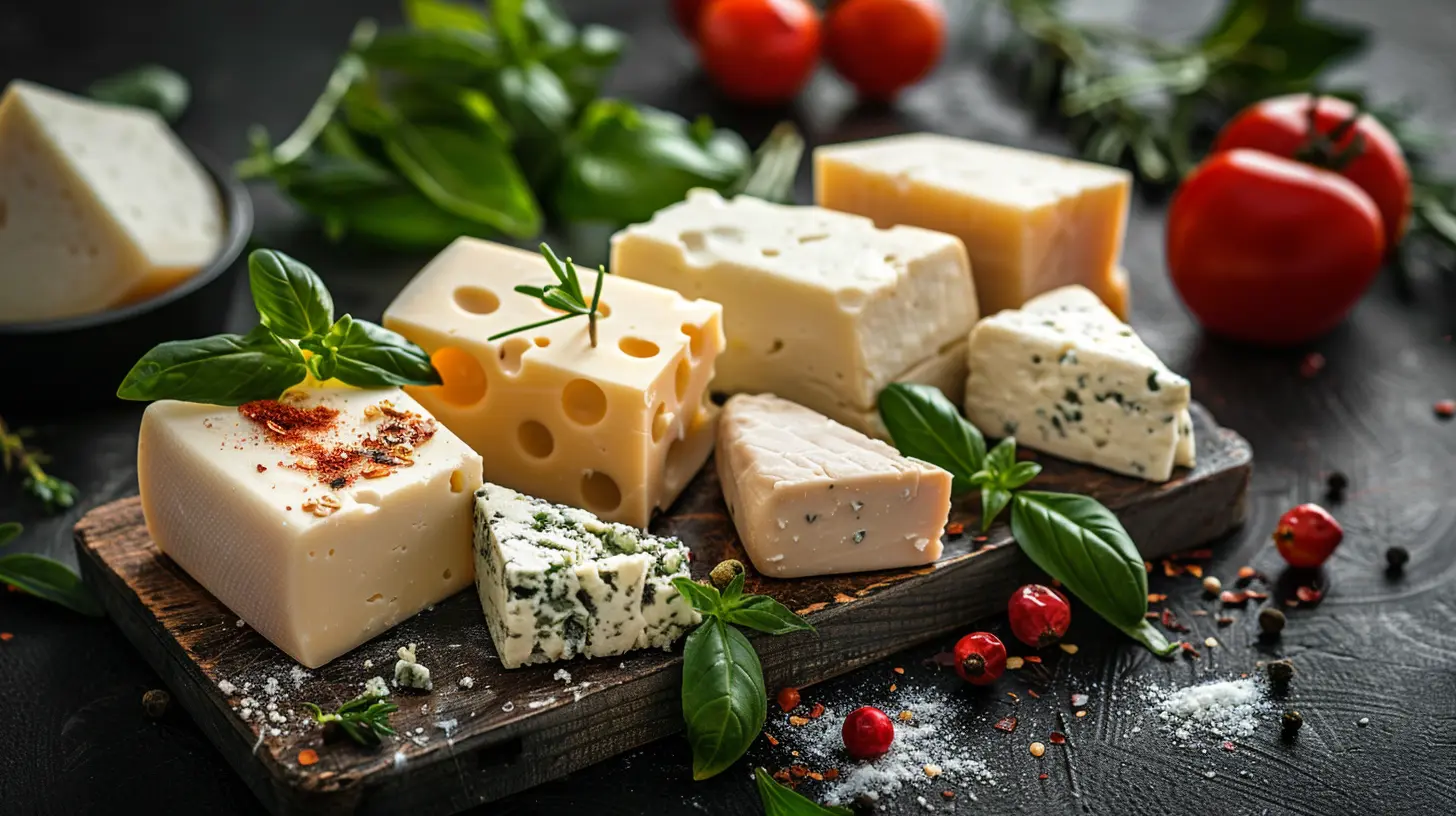
Why Switch to Vegan Cheese?
Before we get to the nitty-gritty (and the gooey), let's talk about why someone might say goodbye to traditional dairy cheese.1. Health Benefits
Many dairy cheeses are high in saturated fats and cholesterol. Vegan cheeses, on the other hand, often come with less saturated fat and contain zero cholesterol—because, hey, plants don’t make cholesterol.Some vegan cheeses are fortified with B12, calcium, and other essential nutrients, making them a smart choice for anyone on a plant-based diet. Plus, they’re usually easier to digest, especially if you’re lactose intolerant (which, fun fact, a large portion of the global population is).
2. Environmental Impact
Dairy farming leaves a hefty carbon footprint. Between methane emissions from cows, land usage, and water consumption, the dairy industry takes a toll on our planet. Plant-based cheese uses fewer resources, contributing to a more sustainable and earth-friendly lifestyle.3. Animal Welfare
Let’s not forget about the cows. Opting for vegan cheese means no animals are harmed in the making of your grilled cheese sandwich. Simple as that.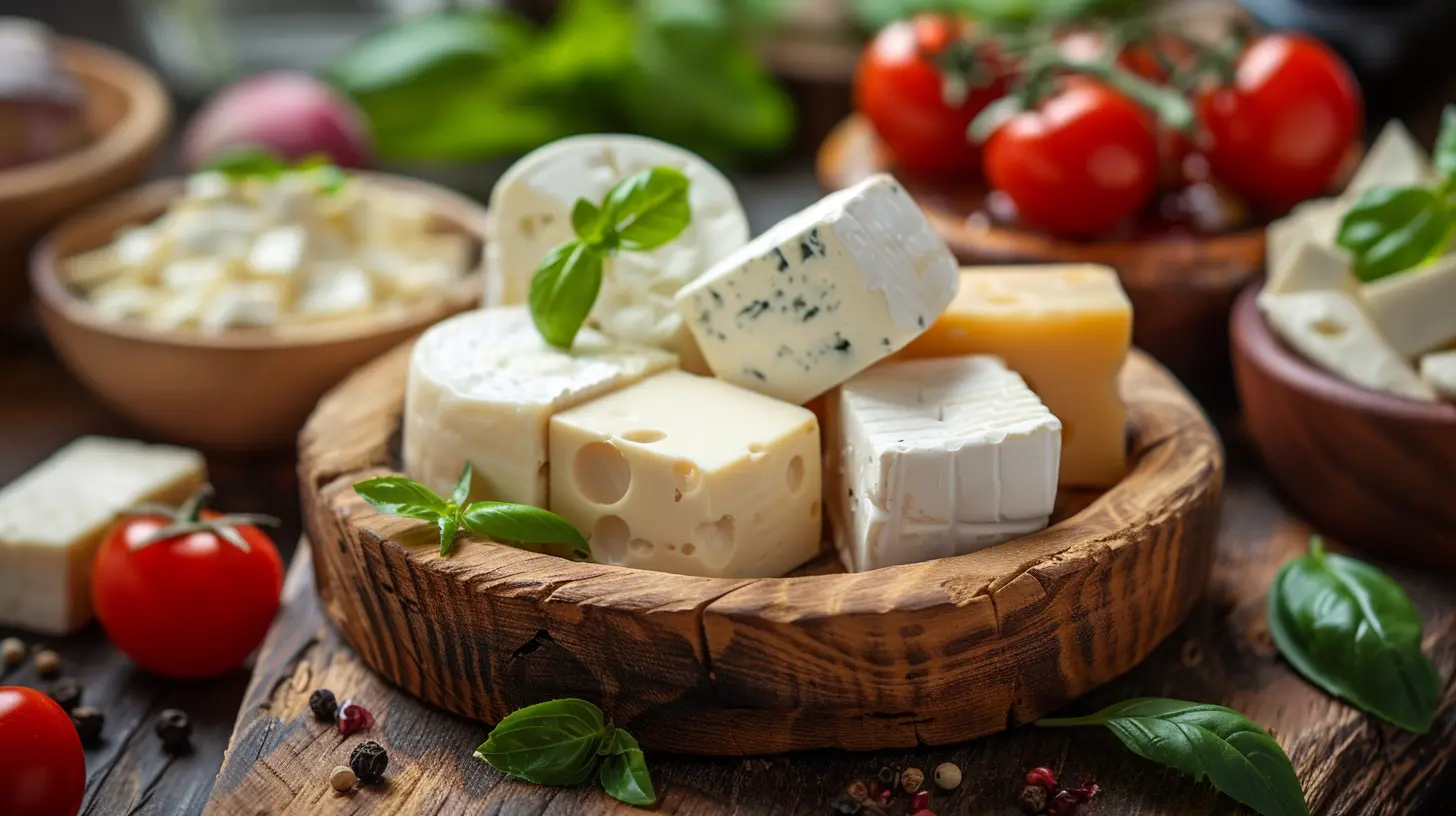
The Basics: What is Vegan Cheese Made From?
You might be thinking, “Wait, how do you make cheese without milk?” Great question! Vegan cheese is made using plant-based ingredients that replicate the creaminess, tang, and texture of traditional cheese.Here are some common bases:
- Nuts: Cashews, almonds, and macadamias are superstars in the vegan cheese world.
- Coconut: Often used for its high fat content and creamy texture.
- Soy: A classic base, especially in older vegan cheese options.
- Oats, Peas, and Potatoes: These are newer players, used for their starch and smooth consistency.
- Nutritional Yeast: Gives that cheesy flavor without the dairy. Think of it as fairy dust for vegans.
Different ingredients lead to different textures and flavors, so there’s something to please every palate.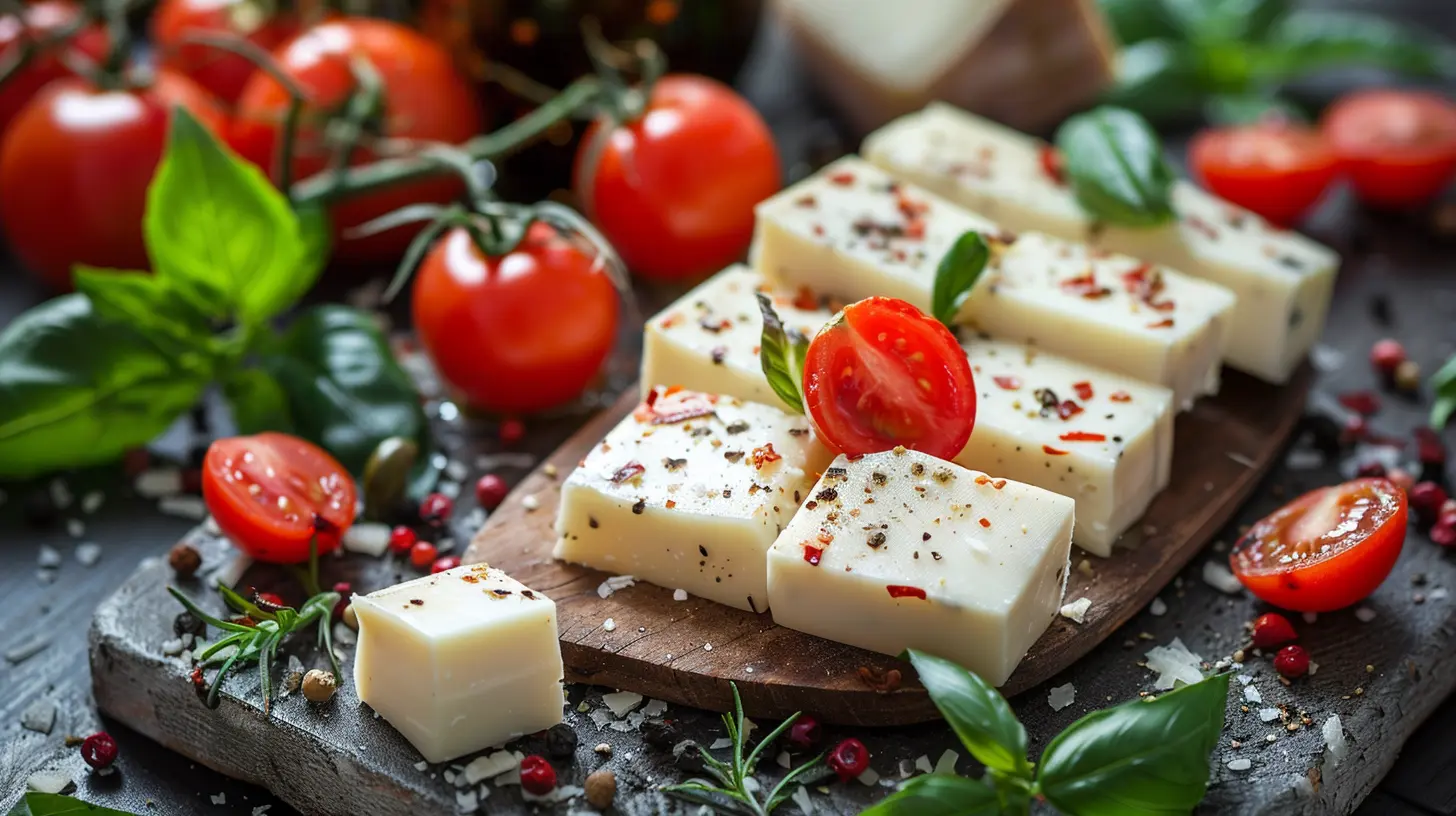
Types of Vegan Cheese
Alright, cheese lovers—let’s talk types. From spreadable to sliceable, melty to crumbly, there’s a vegan version of almost every kind of cheese out there.1. Vegan Cream Cheese
Perfect for bagels or frosting, plant-based cream cheese is usually made with a base of cashews, coconut, or tofu. Flavors range from plain to chive to spicy jalapeño.2. Vegan Cheddar
Ah, cheddar. The beloved classic. Vegan versions often use coconut oil and starches to achieve that firm-yet-melty texture. Some brands offer sharp versions that even mimic the aging process for that extra tang.3. Vegan Mozzarella
Need something that actually melts on pizza? Vegan mozz has come a long way. Many options now bubble and stretch almost like the real deal thanks to tapioca starch and oil blends.4. Vegan Parmesan
This one’s usually a crumbly topping made from nuts, garlic powder, and nutritional yeast. Big flavor in a small sprinkle.5. Vegan Feta
Crumbly, salty, and perfect for salads. Vegan feta is often made from tofu or almonds and delivers that same tangy bite.6. Gourmet Artisan Vegan Cheese
These cheeses are in a league of their own. Made using traditional fermentation and aging techniques (just without the milk), you’ll find options like truffle brie, smoky blue, and herbed chèvre—all reinvented vegan-style.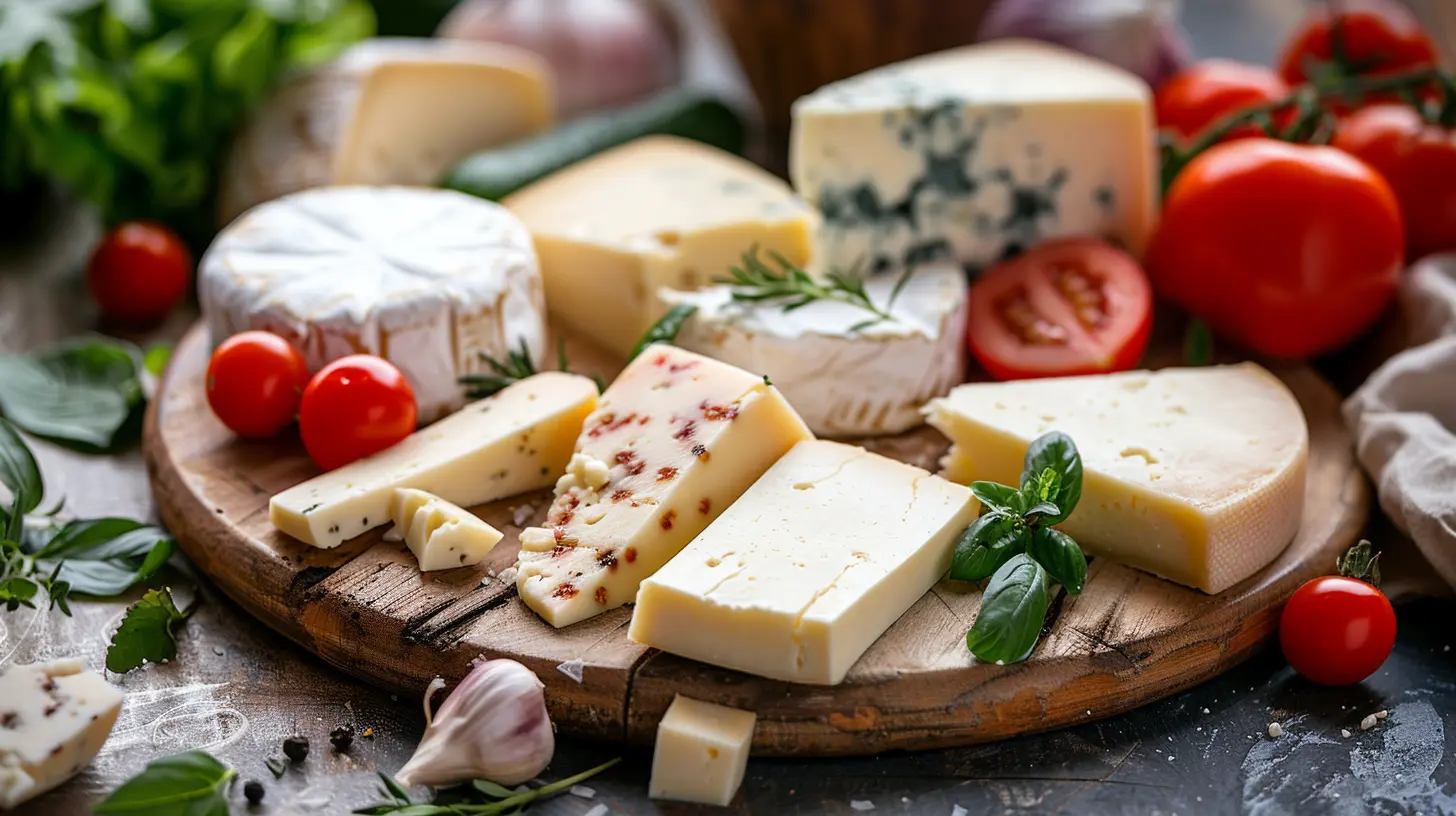
How Does Vegan Cheese Taste?
Let’s not sugarcoat it—some early vegan cheeses were... not great. Rubber texture, strange aftertaste, no melt. But not anymore.Today’s market is packed with brands that have nailed the science of delicious dairy-free cheese. Sure, some still taste different from their dairy counterparts, but others are so good you might not even notice.
The key is to experiment. Try a few brands and varieties. Some mascaras smear, some pop. Vegan cheese is kinda similar—trial and error until you find your perfect match.
Tips for Choosing the Right Vegan Cheese
Feeling overwhelmed in the dairy-free aisle? Don’t worry, I got you. Here’s what to look for:- Check the ingredients: Choose options with whole food bases like nuts or soy instead of just oils and starches.
- Texture & Meltability: If you're making pizza or lasagna, go for cheeses that specify melty-ness.
- Flavor profiles: Smoky? Sharp? Herb-infused? Pick according to your recipe.
- Brand reputation: Some standout brands include Miyoko’s, Violife, Kite Hill, and Treeline. Hit up online reviews if you’re unsure.
DIY: Making Vegan Cheese at Home
Yup, you can absolutely make your own! Homemade vegan cheese is fun, customizable, and usually cheaper than store-bought options.Simple Cashew Cheese Recipe
Ingredients:- 1 cup raw cashews (soaked for 4 hrs or overnight)
- 2 tbsp nutritional yeast
- 1 clove garlic
- 1 tbsp lemon juice
- ½ tsp salt
- ¼ cup water
Instructions:
1. Drain the soaked cashews.
2. Add all ingredients to a blender.
3. Blend until smooth and creamy.
4. Adjust salt or lemon to taste.
That’s it! Use it as a spread, dip, or sauce base. Want it firmer? Add some agar agar and let it set in the fridge.
Cooking with Vegan Cheese
Vegan cheese doesn’t just sit on a cracker—it’s totally versatile.- Pizza: Use melty mozzarella-style shreds.
- Mac n Cheese: Blend up cashew cheese sauce for creamy perfection.
- Grilled Cheese: Layer vegan cheddar between sourdough slices and grill.
- Quesadillas: Vegan cheese + beans = flavor-packed filling.
- Cheeseboards: Include a variety of textures and flavors, fruits, nuts, and dips.
The possibilities are endless!
Common Concerns About Vegan Cheese
Let’s tackle some FAQs, shall we?“Is vegan cheese healthy?”
It depends. Like any processed food, some types are healthier than others. Look for versions made with whole foods and minimal additives. And of course, enjoy in moderation—vegan doesn’t always mean low-calorie.“Why is vegan cheese expensive?”
Nuts and high-quality ingredients aren’t cheap. Plus, fermentation and production methods can be labor-intensive. The good news? Prices are gradually improving as demand increases.“Does it melt like real cheese?”
Some do! Others don’t. Look for packaging that mentions “melts” or “grates.” Trying different brands helps here too.The Future of Vegan Cheese
We’re just scratching the surface. From food science labs to local artisan kitchens, the innovation happening in vegan cheese is mind-blowing. Companies are even experimenting with cultured vegan cheese using microbial fermentation—basically making milk proteins without the cow.So if vegan cheese hasn’t wowed you yet, just give it time. The next generation is already on its way to your fridge.
Final Thoughts
So there you have it—a deep dive into the creamy, melty, and often surprisingly realistic world of vegan cheese alternatives. Whether you’re cutting dairy for health, ethics, or the planet, you don't have to give up the cheesy goodness you love.Try different types, support local and innovative brands, and maybe even whip up a batch in your own kitchen. Your taste buds (and the earth) will thank you.
all images in this post were generated using AI tools
Category:
Vegan DietAuthor:

Laura Hudson
Discussion
rate this article
2 comments
Arwenia Howard
I never thought I'd find a cheese alternative I loved until I tried vegan cheese! It's amazing how creative flavors can be, and it’s guilt-free too. Perfect for pizza nights, salads, and snacks. Can't wait to explore more delicious options—cheers to plant-based indulgence!
June 21, 2025 at 4:13 AM

Laura Hudson
Thank you for sharing your experience! It's exciting to see how vegan cheese continues to evolve, offering delicious options for everyone. Enjoy your plant-based adventures!
Starling Stone
This article provides a fantastic overview of vegan cheese alternatives, highlighting their diverse flavors and health benefits. It's a must-read for anyone looking to explore delicious plant-based options!
June 18, 2025 at 4:31 AM

Laura Hudson
Thank you for your kind words! I'm glad you found the article informative and inspiring for your plant-based journey.


